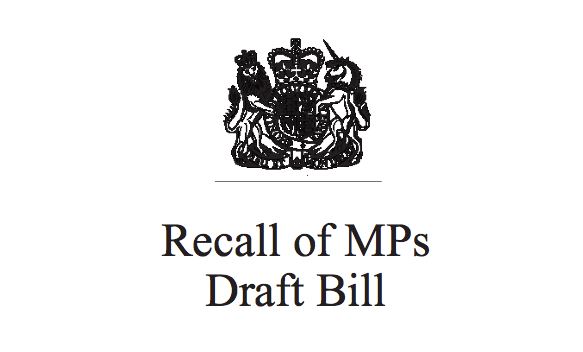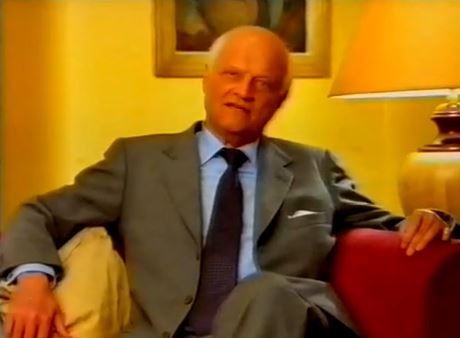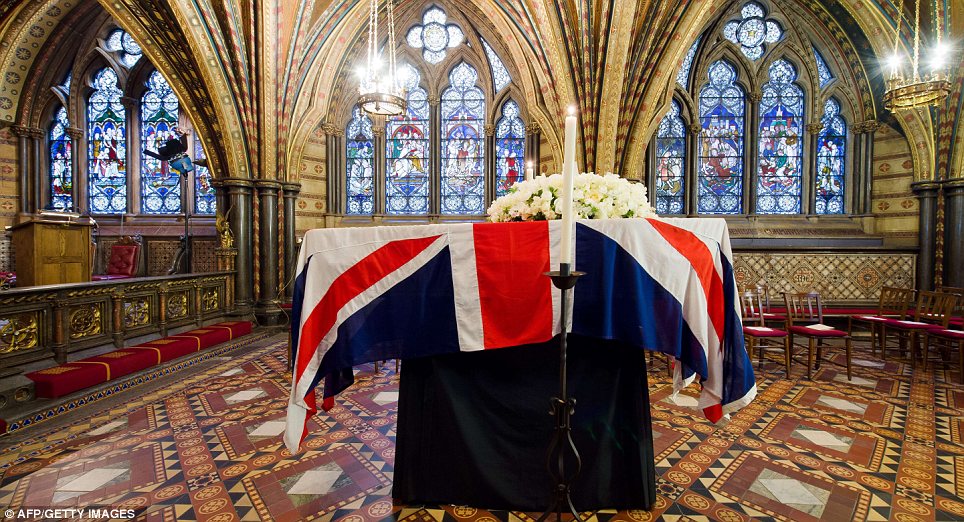Published by ConservativeHome
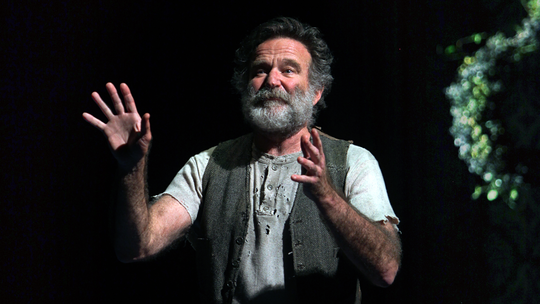 “…that shrewd and knavish sprite/ Call’d Robin”, I tweeted on the #nothingescapesshakespeare hashtag I seem to share with my fellow Bardophile Dan Hannan, when I heard the sad news that Robin Williams was dead. I guess for a certain generation (i.e. mine) he will always be the zany, elfin Mork from Ork, transmitting wry observations about the human condition (i.e. American culture) to his humourless supervisor Orson – “Nanoo Nannoo”. The TV series went stratospheric in the late 70s, and a lot of casting thereafter was done to feed Williams’s whirlwind appetite for comedy – DJ Adrian Cronauer in Good Morning Vietnam, Armand in The Birdcage, or the explosive voice of the Genie in Aladdin, much of which was improvised. Every performance was a spontaneous cyclone of craziness and enthusiasm for life. Continue reading
“…that shrewd and knavish sprite/ Call’d Robin”, I tweeted on the #nothingescapesshakespeare hashtag I seem to share with my fellow Bardophile Dan Hannan, when I heard the sad news that Robin Williams was dead. I guess for a certain generation (i.e. mine) he will always be the zany, elfin Mork from Ork, transmitting wry observations about the human condition (i.e. American culture) to his humourless supervisor Orson – “Nanoo Nannoo”. The TV series went stratospheric in the late 70s, and a lot of casting thereafter was done to feed Williams’s whirlwind appetite for comedy – DJ Adrian Cronauer in Good Morning Vietnam, Armand in The Birdcage, or the explosive voice of the Genie in Aladdin, much of which was improvised. Every performance was a spontaneous cyclone of craziness and enthusiasm for life. Continue reading
Tag Archives: Daniel Hannan
Daniel Hannan: ‘How We Invented Freedom & Why It Matters’
Published by ConservativeHome
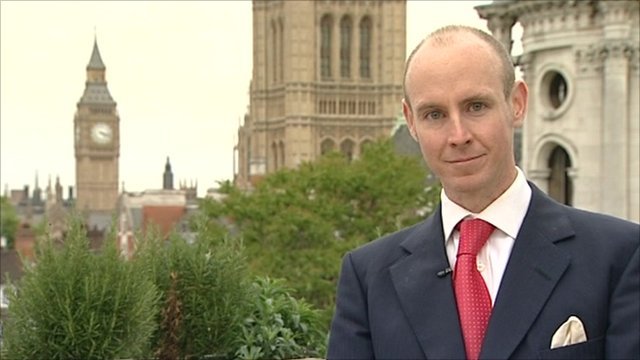 Daniel Hannan “bestrides the Atlantic like a majestic combination of Winston Churchill and Piers Morgan,” says Boris Johnson on the dust jacket of this book. The precise form of that disquieting chimera troubled my mind as I began to read the Introduction. But because Boris is an astute appraiser, judicious classicist and discerning patron, I settled down to what he promises will be a feast of anthropological scrutiny, philosophical insight, political polemic and epigrammatic anecdote.
Daniel Hannan “bestrides the Atlantic like a majestic combination of Winston Churchill and Piers Morgan,” says Boris Johnson on the dust jacket of this book. The precise form of that disquieting chimera troubled my mind as I began to read the Introduction. But because Boris is an astute appraiser, judicious classicist and discerning patron, I settled down to what he promises will be a feast of anthropological scrutiny, philosophical insight, political polemic and epigrammatic anecdote.
And that is exactly what you get – a narrative survey of a thousand years of evolving liberty expressed in page after page of clear-headed contemplation and premium prose. Hannan’s essential research question is: ‘What made the Anglosphere miracle possible?’, and the answer, in short, is to be found in the peculiarly English conception of liberty which incrementally defined an island nation, helped shape an empire and still interrogates the world. We obviously weren’t the first to free captives: that dispensation is found throughout classical antiquity. But the English and then the British were foremost in the conceptualisation of the principles of self-determination – individual rights, private property and personal liberty – which led inter alia to the common law, jury trials, religious pluralism, representative democracy, free markets, the rule of law and the abolition of slavery. Continue reading
Twitter abuse and the joy of #BardPoliticians
Published by ConservativeHome
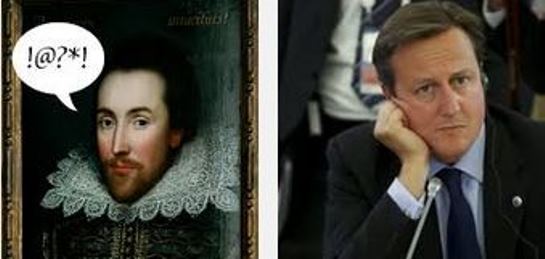 “And there’s for twitting me with perjury,” cries George Plantagenet, Duke of Clarence, as he lunges toward the customary bloody stab-fest at the end of Shakespeare’s Henry VI Part III.
“And there’s for twitting me with perjury,” cries George Plantagenet, Duke of Clarence, as he lunges toward the customary bloody stab-fest at the end of Shakespeare’s Henry VI Part III.
As an unapologetic Bardophile, I take the view that nothing escapes the attention of the world’s greatest poet and playwright – democracy, witchcraft, suicide, psychosis, England, Iceland, football and tennis: it’s all there. But ‘twitting’ during the Wars of the Roses was not a prescient reference to the emergence of Twitter: it is part of a tirade of insults among fractious brothers each vying for the Crown of England. Richard taunts Prince Edward, who declares himself better than all three traitorous and usurping brothers. King Edward IV, Richard and George in turn stab the young Prince Edward to death. Queen Margaret faints, and Richard skulks off to the Tower. Continue reading
Coalition colludes in a sham Recall Bill
Published by Daily Mail
Back in 2009, in the wake of the MPs’ expenses scandal and a profound crisis in the British political system, David Cameron made a speech that electrified the Conservative Party and promised to usher in a revival of democracy. With great rhetorical flourish, he expounded his core conviction like an article of faith:
“I believe the central objective of the new politics we need should be a massive, sweeping, radical redistribution of power: from the state to citizens; from the government to parliament; from Whitehall to communities; from the EU to Britain; from judges to the people; from bureaucracy to democracy. Through decentralisation, transparency and accountability we must take power from the elite and hand it to the man and woman in the street.”
It was wonderful Whiggish stuff, which is no real surprise as it echoed (indeed, lifted almost verbatim) the words of self-professed Whig Daniel Hannan MEP and his Roundhead compatriot Douglas Carswell MP, who had co-written just months before: Continue reading
A Conservative-Referendum Party: the vindication of Sir James Goldsmith
Published by Daily Mail
The House of Commons has inched closer toward legislation that will, at long last, give the British people an In-Out referendum on our troubled membership of the European Union.
The whipped private member’s bill proposed by Conservative MP James Wharton may be an irregular use of a technical parliamentary process; it may not have much cross-party support; it may be a cynical device to stem the rising tide of Ukip; and it may not be binding on a future parliament. But there is no doubt that if this Bill were to become law and the Conservatives were to win an outright Commons majority at the next General Election, it would be political suicide for David Cameron (or any Conservative leader) to repeal this particular sovereign Act of Parliament. Continue reading
The Tyranny at the heart of the Conservative Party
Published in Daily Mail
 I have never met Nadine Dorries, but I feel as though I have. She radiates the sort of plain-speaking, unstuffy approachability which is rapidly becoming rather attractive to the disaffected and disillusioned masses – if the Farage Factor is anything to go by. I listened intently to her speeches on abortion 18 months ago – in particular her plea for the utterly common-sense safeguard of separating ‘independent’, NHS-funded counselling from the profit-making abortion providers. I watched with sadness as she was predictably pilloried by the left-liberal media, but I was appalled when she was treated worse by some of her own parliamentary colleagues – simply for having the temerity to inject a little reason into the irrational consensus that constitutes our apparently immutable abortion settlement.
I have never met Nadine Dorries, but I feel as though I have. She radiates the sort of plain-speaking, unstuffy approachability which is rapidly becoming rather attractive to the disaffected and disillusioned masses – if the Farage Factor is anything to go by. I listened intently to her speeches on abortion 18 months ago – in particular her plea for the utterly common-sense safeguard of separating ‘independent’, NHS-funded counselling from the profit-making abortion providers. I watched with sadness as she was predictably pilloried by the left-liberal media, but I was appalled when she was treated worse by some of her own parliamentary colleagues – simply for having the temerity to inject a little reason into the irrational consensus that constitutes our apparently immutable abortion settlement.
If I’d been in her abused shoes, I might have been tempted to jet off to spend a few weeks with Ant & Dec in the jungle myself, if only out of a preference for piranhas over politicians. Continue reading
Music, Hymns, Poetry and Scripture – the solemn majesty of Lady Thatcher’s funeral
Published by ConservativeHome
The chimes of Big Ben did not strike 10am. For three whole hours they were silenced in reverence, as London paused and the flags of England bowed. Draped in the red, white and blue of the country she loved, the coffin carrying the body of the late Margaret Thatcher made its way out of the Crypt of St Mary Undercroft, past the statue of Richard Coeur de Lion, the kingly symbol of England’s enduring Christian faith; and then past Cromwell, sword in one hand and Bible in the other, forever reminding us that the people are sovereign, Parliament is supreme, and God makes the law. And then she passed by Churchill, the last prime minister to defend these islands against invasion and the indignity of surrender to a foreign power.
Emmeline Pankhurst looked on, smiling at the fulfilment of her revolution. Nelson and the proud lions of Trafalgar joined in the homage – with spontaneous applause from the thousands who lined the streets to honour the longest-serving prime minister of the 20th century. She was, by popular consent, the greatest of our post-war leaders: after Churchill, the most remarkable and heroic of this second Elizabethan age. An intimate service in a Grantham chapel would have left the world asking: “What ceremony else?” So, black horses, a 1.5 ton gun carriage, cathedral bells, the insignia of the Armed Forces and the Queen herself all joined together in tribute to The Lady. Anything less would have shamed the nation. Continue reading

